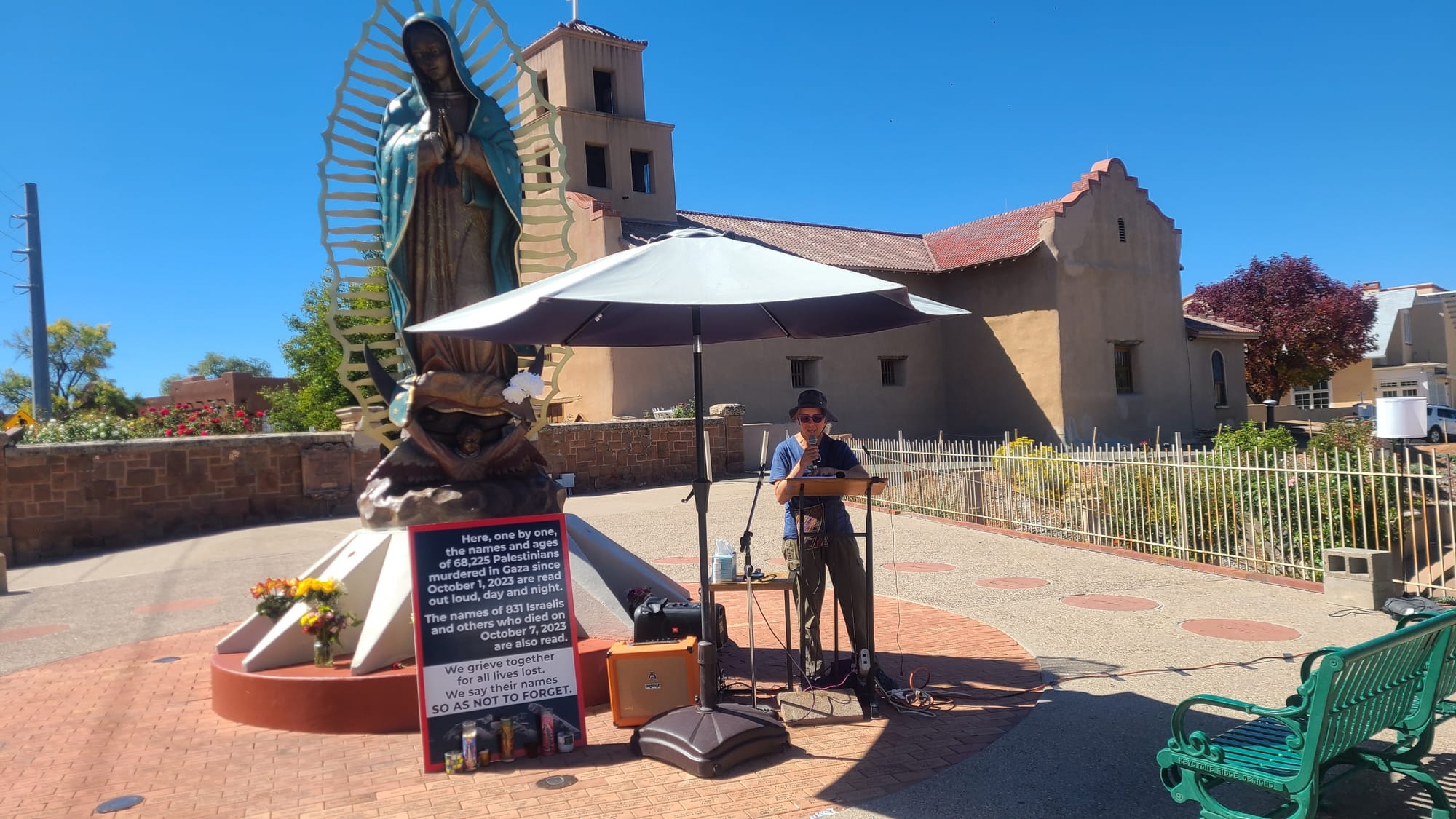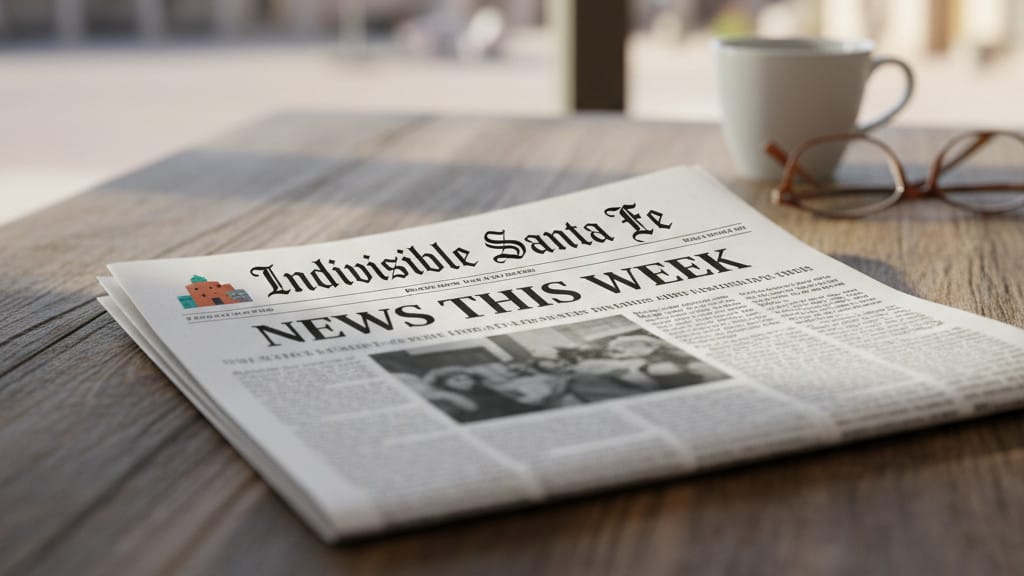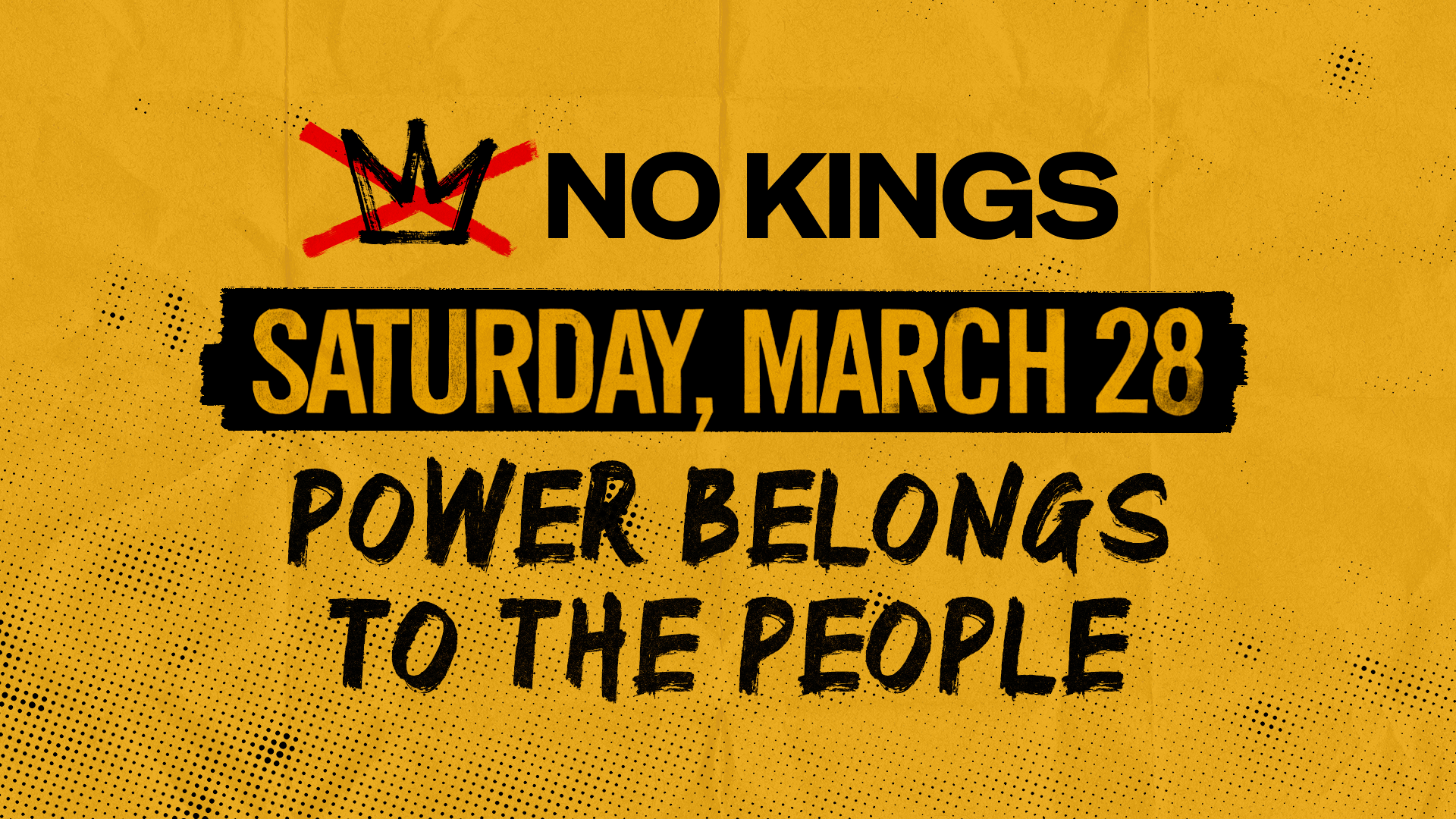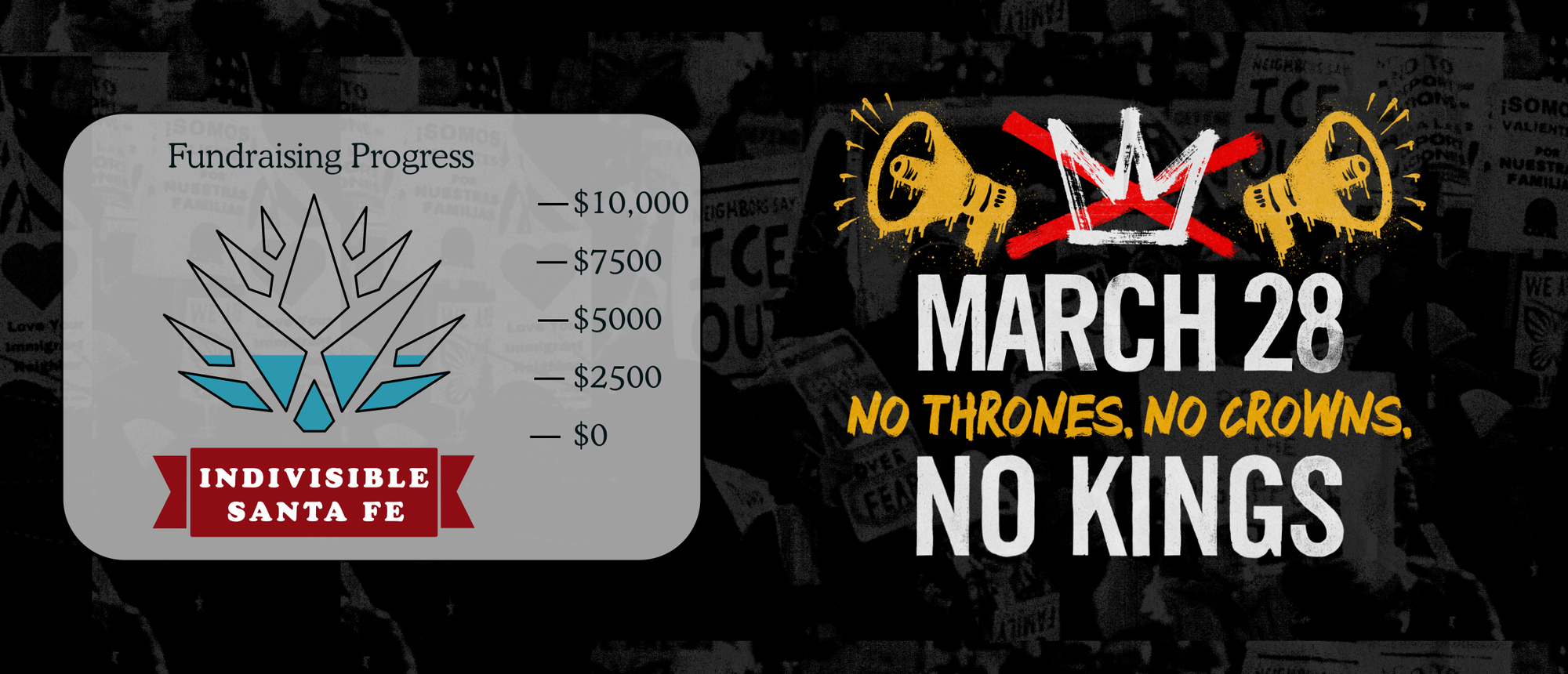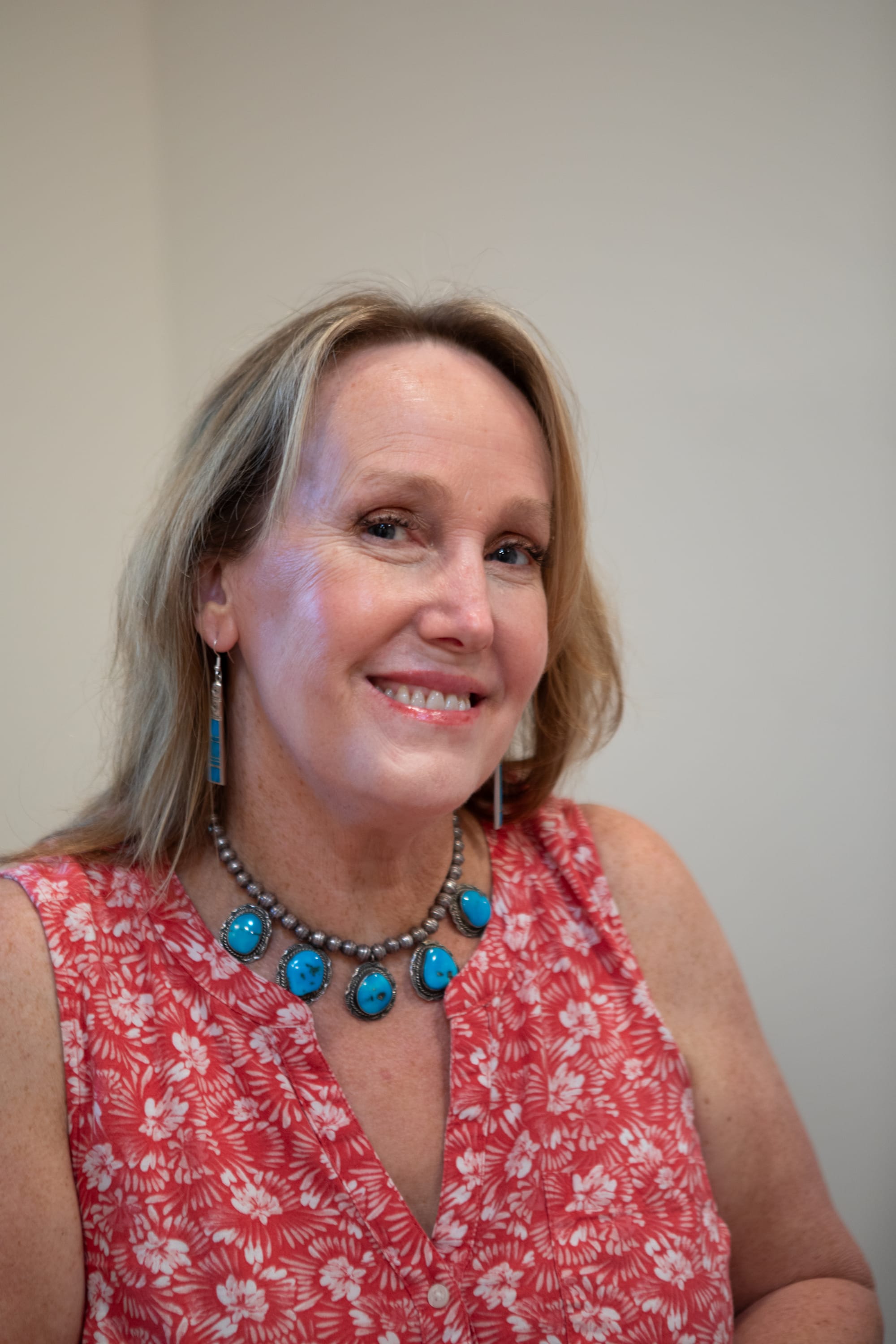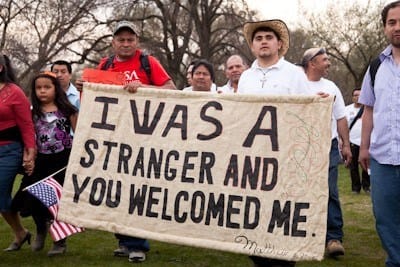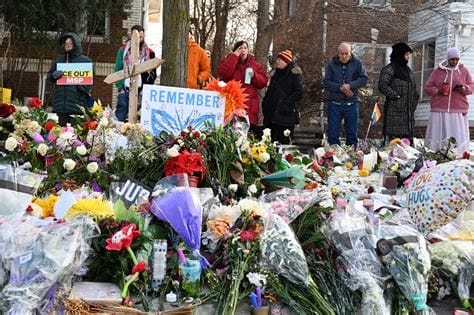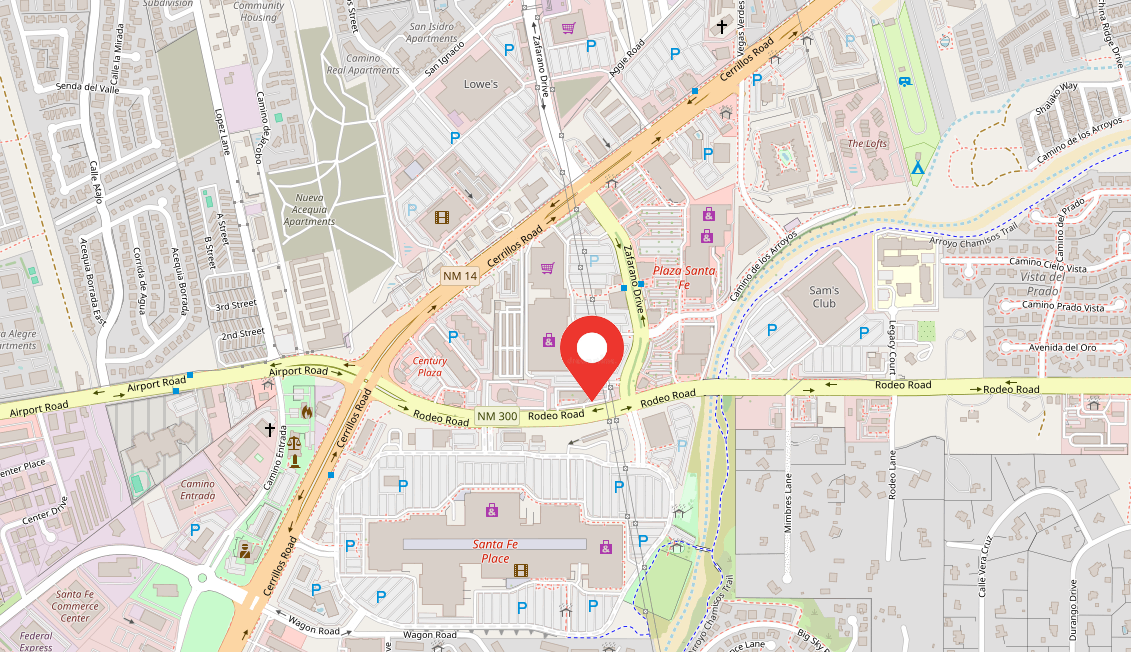A few days ago, I joined in the honoring of people killed in Gaza since October 1, 2023. For roughly five days and nights, people are reading the names—that is, the names that are known, along with their ages, of 68,225 Palestinians and 831 Israelis. It’s a purely symbolic act which, no, will not topple an authoritarian regime, nor does it attack any of the pillars supporting the regime. Why then did I decide to spend two hours reading and listening to others read?
For one thing, symbolism matters. Imagine Palestinians living in Santa Fe who realize that a number of people cares enough about them to organize and participate in such an activity. Likewise, not honoring the dead sends a message. Many of the protests that we organize—the Palestine protest at the Roundhouse at noon every Wednesday, or the protest on Cerrillos and Saint Francis also midday on Wednesdays—are symbolic. They aren’t going to change people’s minds. But they do show that people are upset, that people care, and that we refuse to be silent. That matters.
Young people tend to be particularly upset about Gaza and about the climate catastrophe. When they see Democrats or elderly folk ignore those issues, they lose interest in politics or develop scorn for the Democratic party. Simply saying that Democrats are a much better alternative to Republicans, never mind how weak they have historically been on both Palestine and the climate, is not enough to regain their enthusiasm. Taking a stance, and (one hopes) moving from symbolism to actual action (like primarying politicians who accept money from AIPAC and Big Oil), are important ways to regain the support of young and other disillusioned people.
There’s one final, simple reason why I joined. It’s about who I am, how I wish to feel about myself. When someone approaches me and asks for a small chunk of time that I would otherwise spend getting depressed poring over political emails, I want to show that person that I take their issues and concerns seriously. I want to say, in public, I am Jewish and understand that being anti-Zionist is not the same as being anti-Semitic.
Does it matter? It matters to how I feel about myself.
Reading those names and the ages of those who died, I discovered a couple of other things. One woman choked up when she read “zero” as the age of one of the deceased. I struggled with the pronunciation of many of the Arabic names, but I also found myself getting choked up over familiar names: Fatema, Zakaria, Hasan, Syed, Ahmed. Those are names of people I have known, worked with, and loved in Bangladesh. They are names familiar from having had so many Pakistani and Afghan young people work with me as interns. Each of those names, so familiar to me, represents a person with a family, with friends, with a life, who is gone not due to natural causes but due to a war funded by American taxpayers.
I do not feel OK ignoring that. And the emotions associated with reading the names, while painful, also helps me connect with an issue that requires a lot more of our attention. We worry daily about where this country is headed. Palestine is a reminder that devastation, destruction, and death are not just future concerns; they are with us now and we should be much more vocal in our resistance.

